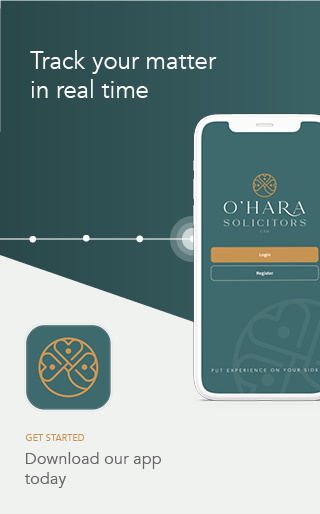Debt Recovery
Debt Recovery
Spending time on late payments while trying to run your business can be frustrating, and in addition to costing you money, means you are not fully focussed on the things you should be doing. Most small and medium sized businesses have faced this situation which frequently results in cash flow problems and damages client relationships. It can be stressful, wondering if you will ever be paid what you are owed, but knowing what the process is, getting good advice and understanding the legal options for enforcement can help.
Steps in the process
- Initially an invoice for work done, either goods or services provided, should be sent to the customer with the payment terms set out clearly.
- A reminder email or letter is sent (this may also be a telephone call). Usually at this point you would indicate that no further work will be undertaken until the outstanding debt is paid.
- A formal final letter with a payment deadline, usually 7 days, is sent indicating that the debt will become subject to legal proceedings. This statutory demand more often than not sees the outstanding money paid.
- The debt recovery is either passed to a third party-collection agency, goes to court of is resolved via ADR. The small claims track in the County Court is suitable if the debt is under £10,000 or the High Court if the debt is more then £100,000.
Court proceedings
At this stage the debtor is sent a formal court form by the Court, requesting payment, interest and costs within 14 days. If the debtor files a defence or disputes the debt additional evidence and information may be required. It is important that you have considered and ideally sorted any potential issues before going to court.
If the debtor does not respond the Court issues a judgement that confirms the debtor has defaulted on payment. This will affect their credit rating for 6 years and allows you to take enforcement action immediately. There are various enforcement options possible. The appropriate method will depend on varying factors such as the amount of the debt, the ability of the debtor to pay, your desire to continue with the business relationship, the time you have available, etc. You will need to consider the suitability and likely effectiveness of each one in order to give you the best chance of recovering your debt. Options include issuing a winding-up procedure, starting an insolvency proceeding, using a private enforcement officer or alternative dispute resolution.
Alternative Dispute Resolution
Disputes regarding debts should be resolved as expeditiously as possible. Court action should always be a last resort. Surprisingly often, negotiating and compromise can result in a good outcome for all parties, avoiding court and extra costs. It is important, of course, to know your parameters to get the best possible resolution for you and your business.
Useful tips
- The length of time taken to recover debts is typically 2 weeks to 6 months.
- Late Payment legislation allows you to charge interest and costs on any debt recovery.
- Know your debtor in terms of whether they are a sole trader or international business, their tendency to pay late, etc., as this can help reduce your risk and costs.
- Legislation protects consumers from aggressive debt recovery behaviour.
- Late payment legislation comes into force 30 days after an invoice issues.
We provide a full range of litigation services, including debt recovery. If you would like information about the services we offer and about how we charge for our services, please contact one of the partners in our litigation department.
If you need any assistance, contact one of our lawyers at [email protected] or call (023) 9225 9822 for expert legal advice
Our Fees
Hourly rates
Our fees will be primarily based on the time spent by us in carrying out your instructions and the current hourly rates of our solicitors are as follows:
|
Level of Experience |
Rate (exclusive of VAT) |
|
Partners |
from £350 to £425 per hour |
|
Solicitors |
from £245 to £295 per hour |
|
Paralegals/Trainees |
from £125 per hour |
VAT at the prevailing rate will be charged in addition to the above hourly amounts.
Costs range
The likely range of costs for obtaining default Judgment for a straightforward undisputed debt under £100,000 are:
Stage 1: £1,100 to £1,800 plus VAT and disbursements.
Stage 2: £900 to £1,900 plus VAT and disbursements.
Factors that may influence the likely costs you will incur include the volume of documentation involved, time spent advising you about the merits of your claim and lengthy correspondence.
Disbursements
Disbursements are payments which we make to third parties arising in the course of providing our services. For recovery of a straightforward undisputed debt the only likely disbursement you will incur is a court fee, which is payable at Stage 2 of the process, to issue court proceedings. The table below sets out the appropriate fee payable to the court, which is based on the amount of the debt plus the interest element of your claim.





